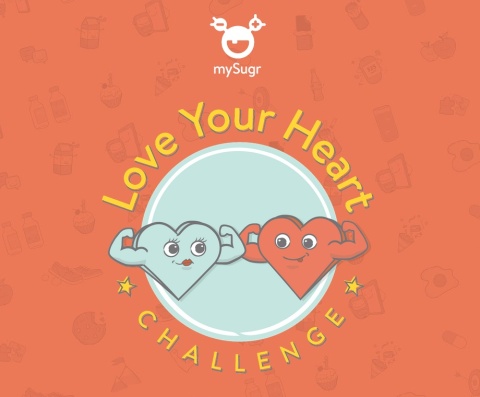
Part 2
Nutrition
Today we’re checking in to see how you’re doing with the challenge so far? Remember, you can check in with your coach anytime along the way.
We’ll also learn why nutrition can be a powerful tool in your healthy heart toolbox, and you’ll get the next challenge assignment. The focus is on building a nutritional lifestyle that’s rich in fiber and healthy fats and low in sugar.
Fiber
Fiber is a component of plant foods that actually can’t be digested and used for fuel. It passes through your digestive tract and is either excreted completely or is eaten up by bacteria in your gut.
Fiber is so good for you! It acts like a magnet and attracts excess cholesterol and triglycerides and gets rid of it in your waste. It also helps beneficial gut bacteria grow to keep you healthy and reduce inflammation.
It's great to incluee high-fivber foods in your diet daily. These include:
- Fruits & veggies
- Nuts & seeds
- Beans & lentils
- Whole grains (rolled/steel cut oats, whole wheat bread, brown rice)
Eat lots of plants – your heart will love you for it!
Want more info? Here’s a helpful handout from the National Lipid Association about adding soluble fiber to lower your cholesterol.
Fats
There are a few different types of fats. Knowing more about them will help you plan meals and snacks that are better for you.
Trans fat - look for “partially hydrogenated oil” on the label. Trans fats can increase your LDL and inflammation. We don’t say this often but avoid these completely. Thankfully, most packaged foods do not use these anymore.
Saturated fat - These come from animal foods, like meat, butter, cheese, and milk. Saturated fats have been demonized since the ’80s, but not based on good science. It’s fine to eat and doesn’t have a big impact on cholesterol, triglycerides, or heart health. Just keep an eye on your portion sizes and make lots of room for plenty of plant foods in your diet.
Monounsaturated fat - These can have a positive effect on heart health when eaten in moderation. You’ll find monounsaturated fats in:
- Avocados
- Nuts and seeds like almonds, peanuts, chia seeds, and flax seeds
- Oils that are liquid at room temperature (olive oil, canola/rapeseed oil)
Alcohol
If you drink alcohol, drink it in moderation. Alcohol is the number one contributor to inflammation and heart issues. Excess alcohol increases blood pressure and weakens the heart muscles.
Excess alcohol is also converted into fats that get stored in your organs and get circulated in your blood which isn’t good for your heart. Your beneficial HDL and fiber can’t keep up with clearing this amount!
The recommendation is for no more than one drink per day for women and two drinks per day for men. Remember, one drink equals:
- 12 ounces of beer
- a 5-ounce glass of wine
- 1.5 ounces of hard or distilled liquor
Sugar
The more sugar you eat, the higher your risk for heart disease. Too much sugar is treated like alcohol – it increases inflammation and the liver converts it to fat, which is bad news for your heart.
Look for added sugars. They get added during food processing to things like soda, cereals, cookies, crackers, and condiments. Even bread and soups have added sugars! Eat as little added sugar as possible.
Food labels even have a new section called “added sugars” in the carbohydrate section. The American Heart Association recommends no more than 36g of added sugar per day, but we recommend less for the best blood glucose and heart health.
The natural sugars in fruit and veggies don't count here, plants are magical.
Free resource – Example 1-week meal plan (& healthy nutrition for people with diabetes overview)
Challenge
Incorporate at least one heart-healthy food at each meal and add a photo of your meal in the mySugr app on your smartphone.
Remember to reach out to your coach anytime! If you have any questions or need some help completing this challenge, they're just a message away. Then keep an eye out for the next coach message in a few days.
Questions and support?
Send a message to your coach in the mySugr app.